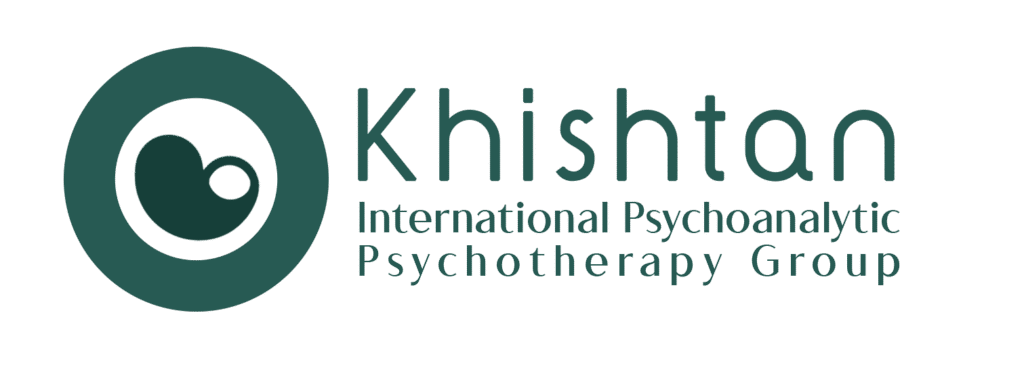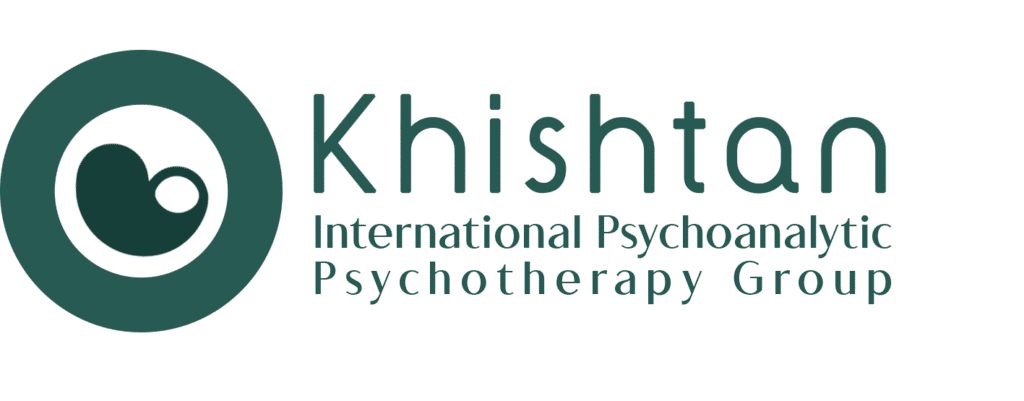Code Of Ethics
Psychoanalysis and analytic psychotherapy refer to methods and principles that help individuals of different ages understand and resolve psychological and emotional problems by deeply examining mental processes—particularly the unconscious aspects of the mind. Although psychoanalysis and other analytic approaches differ in depth and structure, they share many similarities. In this text, for ease of reading, the term psychoanalysis is used in place of analytic psychotherapy.
This method functions as a collaborative process between the patient and the psychoanalyst, in which raw emotional experiences—initially confusing and painful—are transformed into meaningful experiences through the therapeutic relationship. Psychoanalysis emphasizes the importance of mental observation, the capacity to accept and reflect on emotions, and the ability to face reality and ambiguity. In this way, psychoanalysis not only alleviates psychological difficulties but also expands the mental capacity for thought and emotional growth.
These approaches are founded on respect for human dignity and place special emphasis on honoring the autonomy and rights of patients. Core ethical principles applied in all therapeutic activities include respect for patient autonomy, non-maleficence, beneficence, justice, honesty, and adherence to professional commitments. Psychoanalysts are also required to establish therapeutic relationships based on trust and safety, and to avoid any misuse of the therapeutic relationship.
Psychoanalysts are expected to engage in continuous self-assessment, reflection, and supervision in order to safeguard both their patients and themselves as professionals. However, no code of ethics can fully anticipate all ethical dilemmas that may arise in the course of psychoanalysis. Many challenges involve weighing and prioritizing between different fundamental values and principles. In such situations, sound judgment and the integrity of the psychoanalyst are essential in applying ethical principles appropriately to specific circumstances.
The main goals of these ethical principles are to facilitate psychoanalysts’ efforts to achieve the highest ethical standards across all areas of psychoanalytic practice, and to encourage early and comprehensive dialogue about ethical issues with colleagues and with local and national ethics committees. These revised principles reflect the lifelong commitment of Khishtan Psychoanalysis Association members to uphold and promote ethical behavior among colleagues and students. Over time, members of Khishtan are expected to enrich the guidance offered by these principles through their experiences and values. Furthermore, these principles will continuously evolve in light of professional insights and cultural developments.
General Ethical Principles for Members of the Khishtan Association
Introduction
The Khishtan Psychoanalysis Association, based on the revised and updated principles of the American Psychoanalytic Association (APSA), has developed ethical principles and standards to guide the professional conduct of its members. These principles cover how to deal with patients, including child and adolescent patients and their parents or guardians, supervisees, students, colleagues, and the general public. The code of ethics is binding for all members of the Khishtan Association. These ethical principles apply regardless of profession, area of expertise, or whether the members’ activities are clinical, administrative, research, or educational.
When the patient is a child or adolescent, parents or guardians play a key role in the treatment process. This role varies depending on the age, developmental stage, diagnosis, and the patient’s evolving capacities. The psychoanalyst’s relationship with the patient and their family should reflect these changes, and these matters should be discussed openly and explicitly with all parties involved in the treatment. The power differences between the psychoanalyst, the patient, and the parents or other significant family members, along with transference and countertransference, can have a profound impact. If these issues are not properly recognized or managed, the treatment process may be disrupted and progress may be harmed.
The purpose of these updated ethical codes is to define the high standards of care expected of psychoanalysts in treatment, supervision, teaching, and research. By setting these standards, the goal is to make members of the Khishtan Association more aware in their ethical evaluations and decision-making and to alert them to deviations from acceptable conduct.
At times, ethical principles may come into conflict, which can make decision-making difficult. However, in all circumstances, priority must be given to the needs of the patient. For child patients, ethical duties also extend to the parents or guardians, and these responsibilities shift as the patient grows. Beyond this, responsibilities apply to the profession, students, colleagues, and society at large. To act according to ethical principles in psychoanalytic treatment, the psychoanalyst must be familiar with the code of ethics and its regulations. They must also engage in regular self-evaluation, seek consultation when ethical questions arise, and reach fair conclusions when reviewing the actions of colleagues. Members of the Khishtan Psychoanalysis Association are also expected to be aware of government laws relevant to the ethical aspects of their work.
1. Professional Competence
A member of the Khishtan Psychoanalysis Association must perform their work accurately and with high quality, and should continually strive to enhance their knowledge and skills. If a problem arises—such as an illness—that affects their performance, it must be promptly identified and addressed so that they can resume their duties effectively or adjust their responsibilities as needed.
2. Respect for Individuals
A member of the Khishtan Psychoanalysis Association must treat patients, families, students, colleagues, and staff with respect. Any form of discrimination based on age, disability, ethnicity, gender, gender identity, race, religion, sexual orientation, socio-economic status, or any other ethically unacceptable reason is strictly prohibited. Members are expected to develop awareness of their own cultural biases that may compromise respect for others, and to address these issues honestly and openly in professional relationships.
3. Mutual Agreement and Informed Consent
The therapeutic relationship between a patient and a member of the Khishtan Psychoanalysis Association must be based on trust and mutual agreement, or informed consent. At the beginning of treatment, the patient should understand what psychoanalysis is, how it works, and that other treatment methods are available. Members of the Khishtan Association must communicate clearly and respectfully with the patient about session scheduling, fees, and other treatment rules, while attending to the real and therapeutic aspects of the relationship.
Promises made to the patient should be honored, with the understanding that circumstances may change, which could affect the course of treatment. The same general principles apply to child patients; however, decisions and arrangements should be made differently depending on the child’s age and developmental stage, and it must be clearly specified who holds decision-making responsibility.
4. Confidentiality
- Maintaining the confidentiality of patient information is a significant legal and human right and is essential for effective treatment and research. Members of the Khishtan Psychoanalysis Association are expected to make every effort to ensure that confidential information of current and former patients is not disclosed without their permission, and that no patient details are presented outside therapy, education, or research sessions.
- If a member of the Khishtan Association wishes to share patient information with colleagues for consultation, education, or research purposes, the patient’s identity must be anonymized so that they cannot be recognized. In addition, consent must be obtained from the patient after a full explanation of the purposes, risks, and benefits of using the information, and the patient has the right to withdraw their consent.
- Members must not share confidential information with non-clinical individuals (such as insurance companies) without the patient’s informed consent, or in the case of minor patients, without the consent of parents or guardians. However, if it is necessary to provide confidential information to a reviewer on behalf of an insurance company for reviewing requests or service management, this is permissible, provided that the reviewer also adheres to confidentiality standards and prior consent has been obtained from the patient, or the parents/guardian of a minor patient. If a third-party payer, the patient, or the parents/guardian of a minor patient request actions contrary to these principles, the member may ethically refuse these requests, even if informed consent exists. Information should only be shared to the extent necessary.
- Members who are treating a minor patient must maintain the patient’s confidential information, while keeping the parents or guardians informed about the treatment process.
- Members must ensure that patient records and other documents are maintained in a way that preserves patient confidentiality and complies with HIPAA[1] and relevant laws.
- If confidential patient information is shared in consultation or supervision and the consultant or supervisor adheres to confidentiality principles, this is not considered a breach of confidentiality. When a member needs consultation, they must first ensure that the consultant or supervisor is aware of and accepts the confidentiality principles.
- If a member uses confidential patient information in clinical sessions or in scientific or educational discussions with colleagues, the information must be altered so that no one can identify the patient. These alterations should be sufficient so that only the patient themselves can recognize their identity, and no additional consent from the patient is required.
- Supervisors, consultants, and participants in clinical and educational discussions must ensure that any patient information shared for consultation, clinical case presentation, or scientific discussion remains confidential.
5. Honesty
-
If a member of the Khishtan Psychoanalysis Association is asked about their education, certifications, licenses, or experience, they must provide the necessary information to the patient or the patient’s parents or guardians. Members should speak honestly with patients or parents/guardians about the advantages and limitations of psychoanalysis.
-
A member of the Khishtan Association must refrain from making false or misleading statements to patients, parents or guardians of a child patient, or the general public.
6. Avoidance of Exploitation
- Any sexual relationship between a member of the Khishtan Psychoanalysis Association and a patient (current or former), or the patient’s parents or guardians, or any close family members of the patient, whether initiated by the patient, the family, or the member, is wrong and unethical. Physical contact is generally not used as part of psychoanalytic treatment. If physical contact raises concerns for the patient or the therapy, consultation should be sought.
- With children below the age of puberty, physical contact may sometimes occur, for example, when assisting the child or during energetic play. If the child exhibits uncontrollable behaviors, it may be necessary to restrain them. The member must consider the meaning of such contact for both parties. Informing the parents or guardians in these situations can be helpful. If the physical contact causes concern for the member, consultation is recommended.
- Marriage between a member and a current or former patient, or with the patient’s parents or guardians, is unethical, even if there is no objection from the spouse.
- Members must not have any financial relationship with a patient other than receiving treatment fees, nor use patient information for personal gain.
- Members must not request money from patients or their parents/guardians, nor disclose patient names to solicit donations from others.
- If a patient or their family wishes to make a financial donation to a psychoanalytic organization, this should be professionally reviewed, and the psychoanalyst must not be involved in deciding how the donation is used.
- If a patient wishes to give a gift to the psychoanalyst, acceptance or refusal must be considered in light of clinical factors and in the patient’s best interests.
- Sexual relationships between supervisors and supervisees are unethical.
- Supervisors of Khishtan Association members should not be relatives or family members to maintain independence and impartiality in the supervision process.
7. Scientific Responsibility
-
A psychoanalyst must not present fabricated material in lectures or submit it for publication in scientific journals that is unrelated to actual clinical cases. Patient information must be altered in a way that ensures the patient cannot be identified.
-
These principles are generally established to maintain accuracy, transparency, and respect for patient privacy in the publication of clinical material.
8. Maintaining Public and Professional Safety
-
If, during the course of treatment, the work of a psychoanalyst causes confusion or distress for themselves or the patient, they must consult a supervisor. In the case of treating children, the psychoanalyst’s interaction with parents or guardians may sometimes cause problems that require consultation.
-
If a psychoanalyst faces a serious illness or prolonged recovery, or if their analytical abilities are affected, they must consult a colleague or physician to determine whether they can continue treatment. Patients should be covered in their absence.
-
If a psychoanalyst becomes aware of a potential decline in their clinical judgment, they must consult with at least two colleagues. If this decline is confirmed, appropriate actions must be taken to prevent harm to patients.
-
A psychoanalyst cannot provide therapy or consultation to a colleague-patient unless the colleague is aware of it in advance or the patient requests it. In other words, this must occur with the colleague’s knowledge.
-
A psychoanalyst must intervene professionally and under supervision if they observe evidence of unethical behavior by a colleague toward a patient or any issues threatening patient welfare, to protect the patient’s interests.
-
A psychoanalyst must not treat a colleague as a patient unless they are confident that no conflicts of interest or ethical issues exist.
-
If there is a serious threat of harm to a patient or a third party, the psychoanalyst must take appropriate clinical and legal actions, even if confidentiality must be breached.
-
If physical or sexual abuse is occurring, the psychoanalyst must act according to the law and, if necessary, breach confidentiality to protect the patient.
-
The Khishtan Psychoanalysis Association emphasizes enhancing the competence of its members and addresses ethical complaints while maintaining confidentiality principles.
9. Social Responsibility
-
A psychoanalyst must support laws that benefit patients and uphold professional ethics in psychoanalysis.
-
A psychoanalyst is encouraged to devote their time and energy, without receiving payment, to help individuals who need counseling or education and whose lives can be improved through this work.
10. Integrity
-
Psychoanalysts must be aware of their own beliefs, values, and limitations, and pay attention to how these personal factors may affect their work.
-
Psychoanalysts must cooperate with research conducted according to ethical guidelines for members. Failure to cooperate is considered an ethical violation.
Fundamental Principles of the Khishtan Psychoanalysis Association Code of Ethics
The most important aspects of the Code of Ethics are summarized as follows:
1. Confidentiality
-
Psychoanalysts must protect all patient information and refrain from disclosing the patient’s identity in counseling or educational sessions.
-
In cases where there is a serious threat to the patient or others, the use of patient information is permitted, but it must be kept to a minimum.
2. Honesty and Transparency
-
Psychoanalysts must speak honestly with patients about their treatment status and, if they are in training or have completed specialized courses, inform the patient accordingly.
-
Misleading or false statements must be avoided.
3. Avoidance of Exploitation
-
Sexual or financial relationships between a psychoanalyst and a patient (or the patient’s family) are unethical.
-
The therapist must not request gifts or financial assistance from patients or their families, and if a patient offers an unexpected gift, the therapist should refrain from making decisions regarding it.
4. 4. Professional Responsibility and Consultation
-
Psychoanalysts must seek consultation with colleagues or specialists when facing professional challenges.
-
Such consultations should be conducted in a manner that does not compromise patient well-being and allows the psychoanalyst to continue their work.
5. Actions in Crisis Situations
-
If there is a serious threat to the health or safety of a patient, the psychoanalyst must take appropriate legal and clinical actions, including informing the family or legal authorities.
-
In the case of a child or adolescent patient, it may be necessary to inform their parents or guardians.
6. Social Responsibilities
-
Psychoanalysts must protect patients’ rights against unauthorized access to information and support social laws that benefit patients.
-
Additionally, psychoanalysts should devote their time and energy to social activities aimed at promoting public welfare and community mental health.
-
Misleading or false statements must be avoided.
7. Cooperation in Professional Evaluations
-
Psychoanalysts must cooperate in research and ethical evaluations and seek consultation with colleagues to enhance professional standards.
-
Failure to cooperate in these evaluations is considered an ethical violation.
8. Responsibility in Case of Harm to Patients
-
If a psychoanalyst becomes aware of unethical behavior or serious problems in the treatment of a patient, they must take corrective actions to prevent harm to the patient.
-
In the presence of serious risks to the patient or negative impacts on treatment, the psychoanalyst should seek consultation with colleagues to prevent harm to the patient.
Summary of the Content
The Khishtan Psychoanalysis Association Code of Ethics serves as a guide for maintaining professional and ethical standards in psychoanalysis. This code emphasizes the importance of confidentiality, honesty, avoidance of exploitation, professional consultation, and social responsibilities. Psychoanalysts must prevent any violations of these principles and consistently strive to safeguard patients’ mental health while upholding ethical standards.






